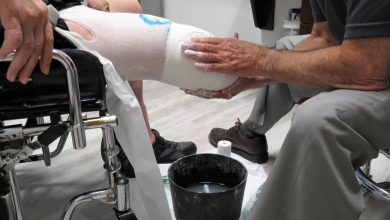Breaking Taboos: Normalising Discussions About Sexual Health
Talking about the bedroom boogie, the lovey-dovey shuffle, the horizontal tango, or just plain sex is considered taboo for many. But sexual health is an integral aspect of your overall well-being, whether we like it or not, as STDs can affect your health, fertility, pregnancy, and even your unborn child.
It is time to take charge of your sexual health, and to stop treating discussions about sexual health with the same level of secrecy as aliens vacationing in Area 51.
Join us and let’s chat about why undergoing regular STD screenings is a must, not to mention it is the moral thing to do.
And action.
Understanding STDs
STDs (short for sexually transmitted diseases) are often also known as STIs (short for sexually transmitted infections) and are infections that spread from one person to another through sexual contact.
They can be caused by bacteria, viruses, or parasites, and may manifest in various forms, ranging from uncomfortable symptoms to severe health complications if left untreated.
STDs are a big health problem. According to the WHO (short for the World Health Organisation), over 1 million STIs are contracted each day worldwide, and every year, about 374 million people get 1 of 4 incurable STIs: chlamydia, gonorrhoea, syphilis, and trichomoniasis.
This is a very alarming statistic and underscores the urgent need for discussions to be had to combat the spread of these infections.
Needless to say, if you are sexually active, you can fall victim to contracting an STD. There are no two ways about it.
The Importance Of Screening
Regular STD screenings done at a sexual health clinic in London (or anywhere else for that matter) are essential for several reasons. Firstly, many STDs can present with mild or even no symptoms, making them easy to overlook without proper testing. According to an esteemed health centre situated in London: “In many cases, the infection is not accompanied by any symptoms until a later stage”. Consequently, individuals may unknowingly transmit infections to their partners, perpetuating the cycle of transmission within communities.
Early detection through screenings also enables prompt treatment, which is vital for preventing the progression of STDs and reducing the risk of other STD-related complications. For example, untreated bacterial infections such as chlamydia and gonorrhoea can lead to PID (short for pelvic inflammatory disease) in women and infertility in both men and women. Similarly, viral infections like HPV (short for human papillomavirus) and herpes can increase the risk of certain cancers if left untreated.
Furthermore, by regularly attending regular screenings, you demonstrate a responsible approach to your sexual health and foster open communication and trust between you and your sexual partner/s.
Who Should Get Screened?
If you are sexually active, YOU should get screened. It is as simple as that. Whether you have had only one sexual partner or one sexual encounter, it does not matter.
If you have multiple partners, you should get screened regularly. If you are pregnant, you should also undergo screening for certain STDs, including HIV Treatment if you test positive for HIV, to protect both your health and the health of your unborn baby. Especially since undiagnosed and untreated STDs during pregnancy can lead to complications such as preterm birth, low birth weight, and transmission of infections to your infant during childbirth.
Types Of STD Screenings
There is nothing to fear, STD screenings are not more extreme than other types of health screenings. They typically involve a combination of laboratory tests and physical examinations. Common screening methods include:
Blood Tests
Blood tests can detect antibodies or antigens produced by the body in response to certain infections, such as HIV, syphilis, and hepatitis B and C.
Urine Tests
Urine samples may be collected to test for infections like chlamydia and gonorrhoea, which can be detected through nucleic acid amplification tests (NAATs).
Swab Tests
Swabs of genital, oral, or rectal areas may be taken to detect infections such as chlamydia, gonorrhoea, and herpes. Swabs are also used for HPV testing, which may involve sampling cervical cells during a pap smear.
Physical Examinations
Healthcare providers may conduct physical examinations to check for visible signs of infection, such as genital warts or sores, and to assess for symptoms of other STDs.
And that is that.
Overcoming Barriers To STD Screening
Despite the importance of STD screenings, several barriers may prevent individuals from seeking testing, because as mentioned at the beginning of this article, talking about sex is considered taboo for many.
To address these barriers, efforts should be made to promote education and awareness surrounding sexual health, reduce the stigma associated with STDs, and increase access to affordable and confidential screening services.
Community outreach programs, school-based education initiatives, and telehealth services can all play a role in overcoming these obstacles and encouraging individuals to prioritise their health.
Long Story Short
Getting checked regularly is important for staying healthy, as it helps catch STDs early, so they can be treated quickly and complications can be avoided.
Plus, regular screenings encourage responsible sexual behaviour, help couples talk openly, and ultimately stop STDs from spreading.
Let’s make sure everyone can easily get the care they need for a happy, healthy life. Honestly, we all deserve it.




